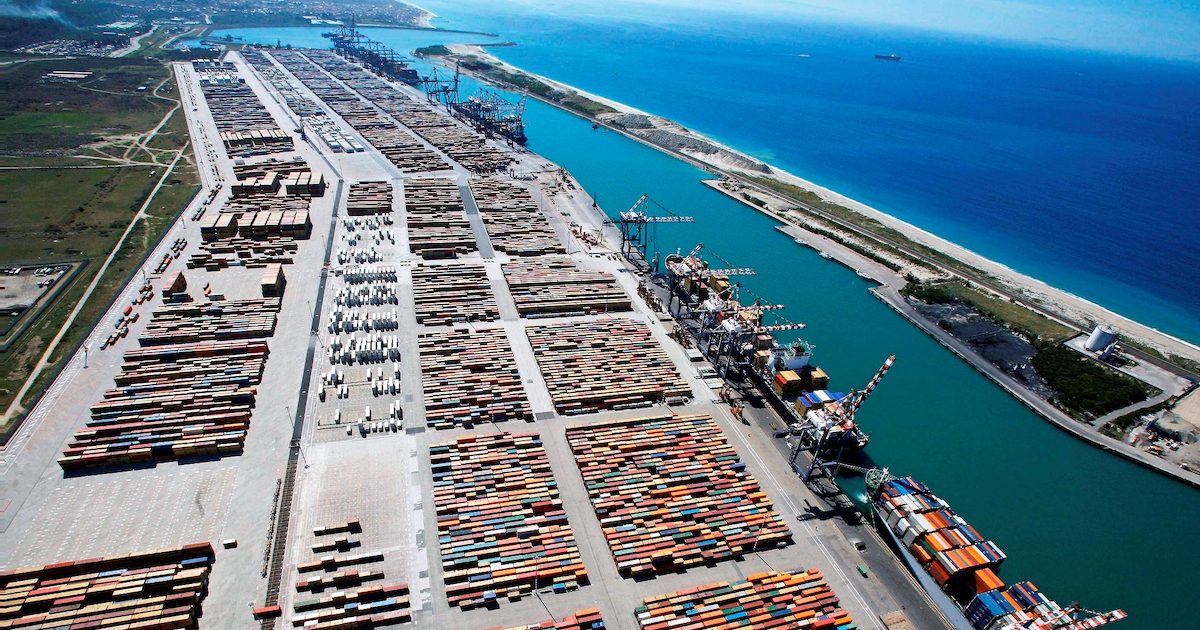Luxury Carmakers Face Headwinds In China: Beyond BMW And Porsche

Table of Contents
Economic Slowdown and Shifting Consumer Sentiment
China's economic slowdown is significantly impacting high-end purchases. The once-unwavering growth in the luxury market is showing signs of strain, forcing luxury carmakers to adapt. Decreased consumer confidence is leading to a postponement of major purchases like luxury vehicles. Consumers are increasingly scrutinizing their spending, prioritizing value and practicality over pure prestige.
- Decreased consumer confidence: Reports indicate a significant drop in discretionary spending among high-net-worth individuals in China, directly affecting luxury car sales.
- Increased value consciousness: The focus has shifted from solely brand status to a more holistic assessment of value, including fuel efficiency, technological features, and after-sales service.
- Impact on sales figures and market share: Several luxury brands have reported declining year-over-year sales in China, demonstrating the impact of this economic slowdown. For example, [Insert data or statistic from a reputable source, e.g., "Sales of Mercedes-Benz in China dropped by X% in Q[Quarter] 2024"].
- Examples of affected brands: The challenges aren't limited to any single brand; both established players and newer entrants in the luxury segment are facing difficulties navigating this economic climate.
Rise of Domestic Luxury Brands
The emergence of strong domestic luxury car brands is posing a significant challenge to international players. Chinese consumers are increasingly embracing homegrown brands that offer competitive pricing, features tailored to local preferences, and strong nationalistic appeal.
- Successful Chinese luxury car brands: Brands like [Name a few successful Chinese luxury car brands, e.g., Hongqi, Li Xiang] are gaining significant market share through innovative designs, advanced technology, and aggressive marketing campaigns.
- Competitive pricing and features: Domestic brands often offer comparable or superior features at a lower price point, directly appealing to the growing price-sensitive segment of the luxury market.
- Impact on market share: The increasing popularity of these domestic brands is directly impacting the market share of established international luxury carmakers.
- Strengths and weaknesses of domestic competitors: While domestic brands excel in understanding local consumer preferences and offering competitive pricing, they may still need to prove their long-term reliability and global brand recognition.
Evolving Consumer Preferences and Technological Disruption
The Chinese luxury car market is experiencing rapid evolution in consumer preferences, driven by technological advancements and changing lifestyles. Luxury carmakers need to adapt quickly to remain competitive.
- Growing preference for electric and hybrid vehicles: The increasing focus on environmental sustainability is pushing demand for electric and hybrid luxury vehicles. Brands lagging in this area are losing market share to more environmentally conscious competitors.
- Demand for advanced technology: Chinese consumers expect advanced features like autonomous driving capabilities, sophisticated infotainment systems, and seamless connectivity.
- Impact of social media and influencer marketing: Brand perception is heavily influenced by social media and key opinion leaders (KOLs). Luxury brands must master digital marketing strategies to reach their target audience effectively.
- The need for adaptation: The need for innovation and agility is paramount. Luxury carmakers must invest heavily in R&D to develop cutting-edge technologies and meet evolving consumer preferences.
Geopolitical Factors and Supply Chain Issues
Geopolitical uncertainties and supply chain disruptions are adding another layer of complexity to the challenges faced by luxury carmakers in China.
- Impact of trade tensions: International trade relations and geopolitical tensions can disrupt supply chains, increasing costs and impacting production.
- Supply chain bottlenecks: Global supply chain issues can lead to delays in production and delivery, further impacting sales.
- Increased cost of imported components: The reliance on imported components increases vulnerability to global fluctuations in currency exchange rates and raw material prices.
- Risk mitigation strategies: Luxury brands need to diversify their supply chains, build strategic partnerships, and employ robust risk management strategies to navigate these challenges.
Conclusion: Navigating the Headwinds in China's Luxury Car Market
In conclusion, luxury carmakers face headwinds in China from a confluence of factors: a slowing economy, the rise of domestic competitors, rapidly evolving consumer preferences, and persistent geopolitical and supply chain uncertainties. These challenges require a multifaceted approach, encompassing a deep understanding of the Chinese market, strategic investments in technology and innovation, and robust risk management strategies. The future of the luxury car market in China will be defined by those brands that can successfully navigate these complex headwinds. What strategies do you believe luxury brands need to adopt to navigate these challenges in the Chinese market? Share your insights in the comments below.

Featured Posts
-
 Eurovision Festival Manchester Dates Events And Venues
May 01, 2025
Eurovision Festival Manchester Dates Events And Venues
May 01, 2025 -
 Prosecutorial Misconduct Allegations In Cardinal Trial Gain Traction With New Evidence
May 01, 2025
Prosecutorial Misconduct Allegations In Cardinal Trial Gain Traction With New Evidence
May 01, 2025 -
 Becciu Deve Risarcire I Suoi Accusatori La Sentenza Definitiva
May 01, 2025
Becciu Deve Risarcire I Suoi Accusatori La Sentenza Definitiva
May 01, 2025 -
 Cleveland Cavaliers Jarrett Allen Delivers Impressive Le Bron Style Dunk
May 01, 2025
Cleveland Cavaliers Jarrett Allen Delivers Impressive Le Bron Style Dunk
May 01, 2025 -
 Trial Begins Jury Selection In Charlotte Mothers Death Case
May 01, 2025
Trial Begins Jury Selection In Charlotte Mothers Death Case
May 01, 2025
